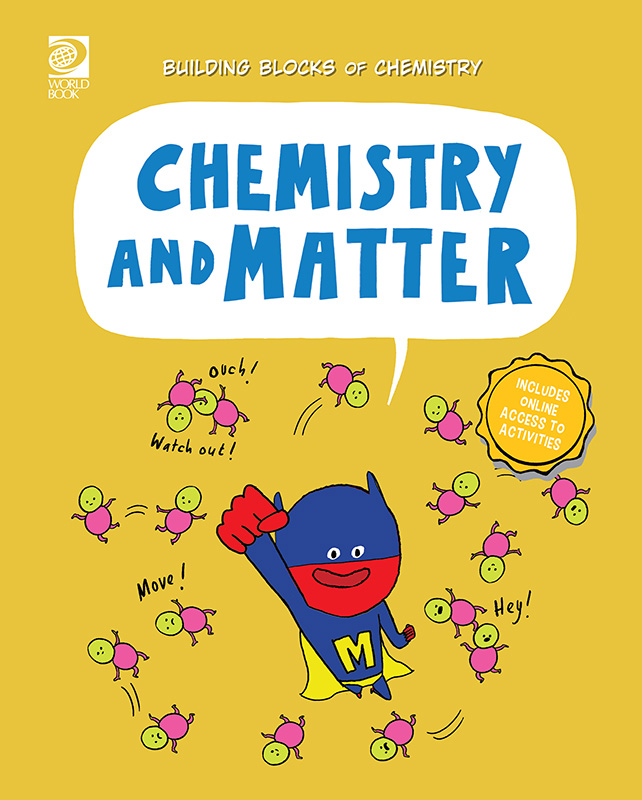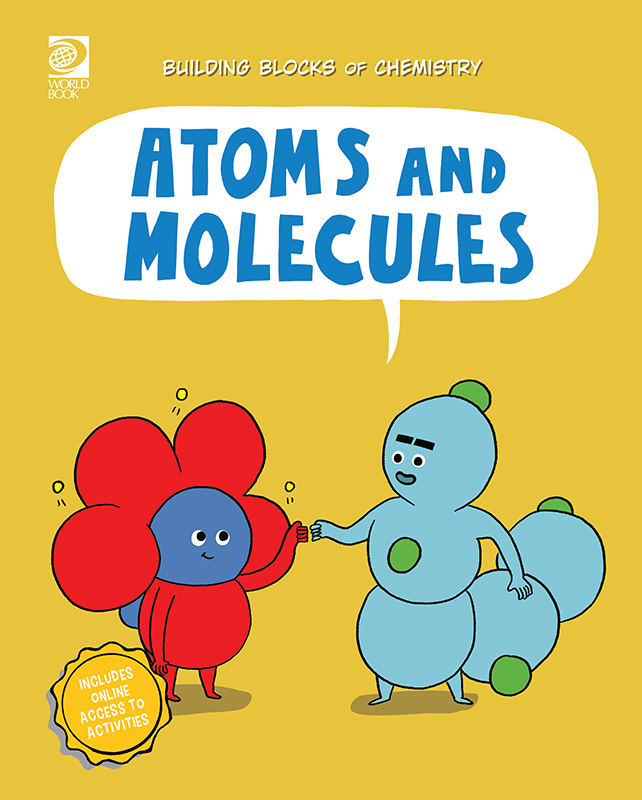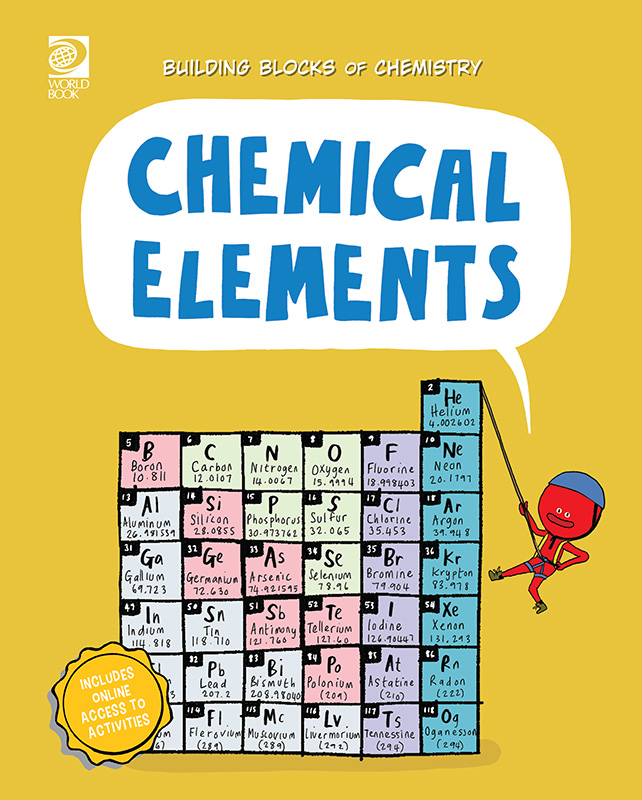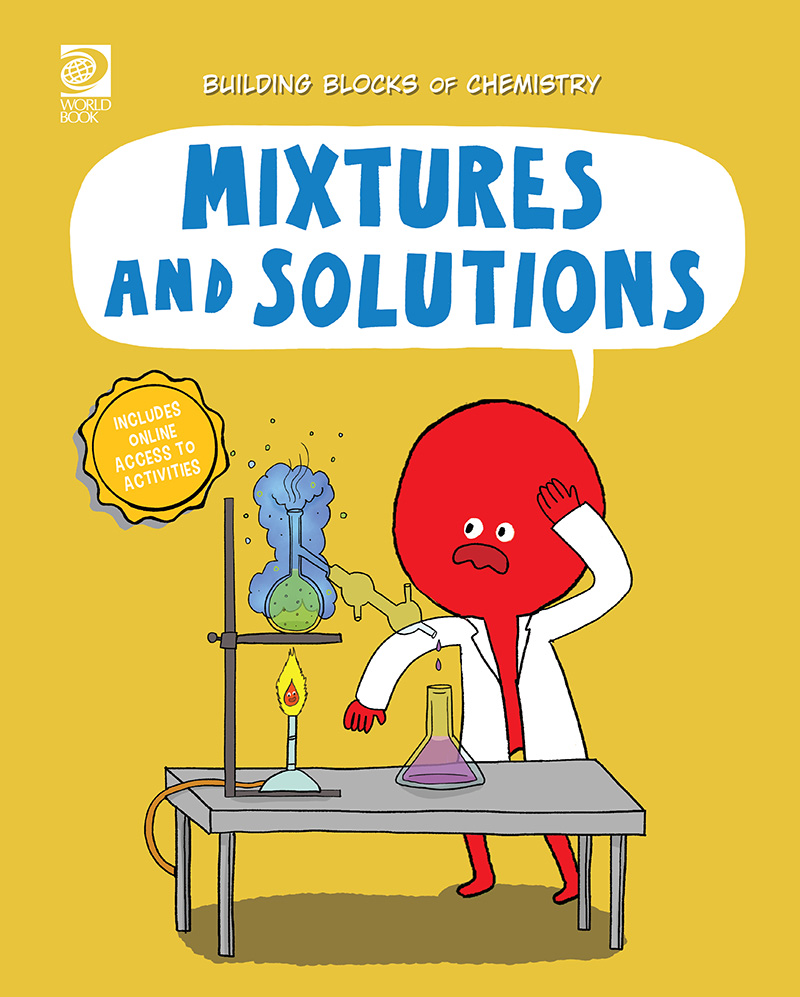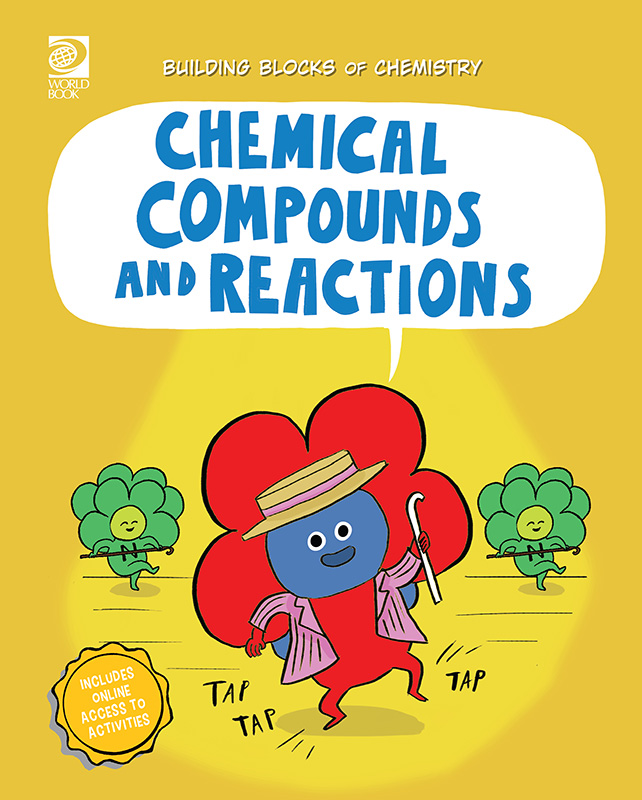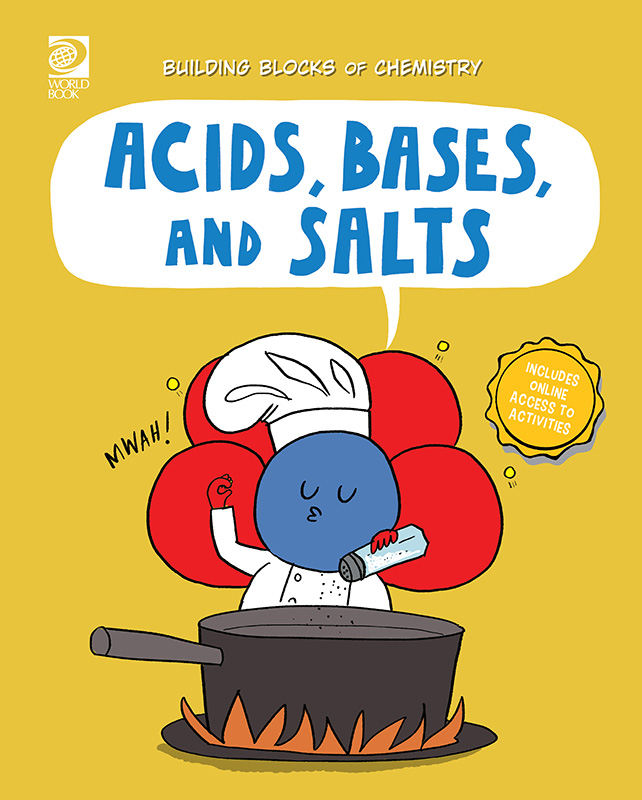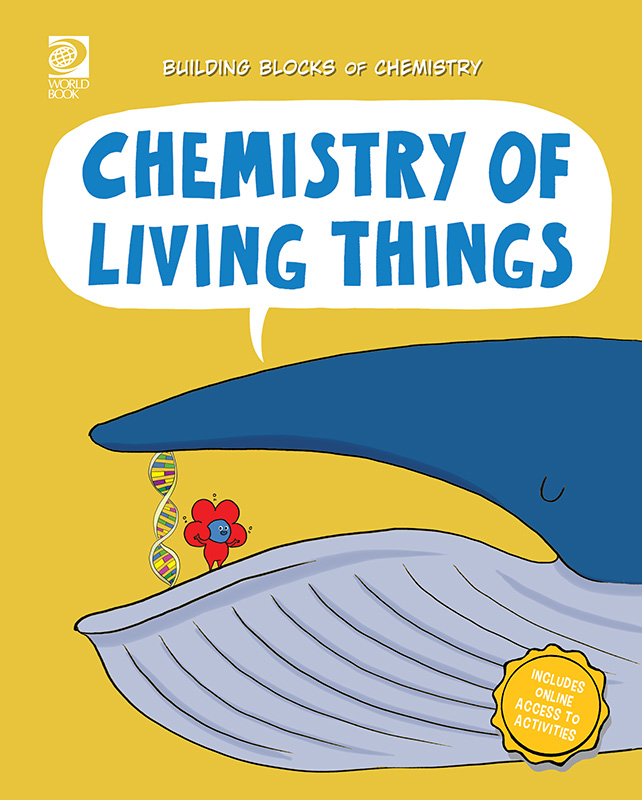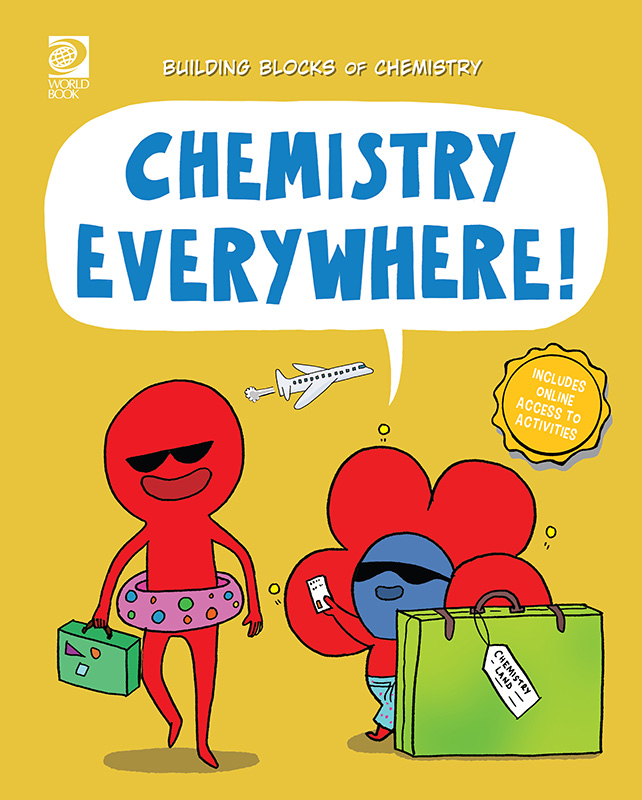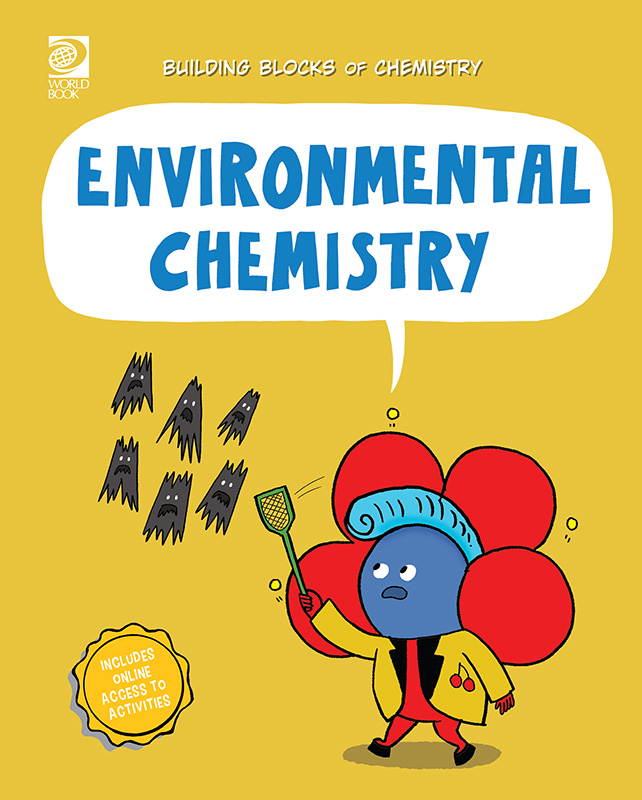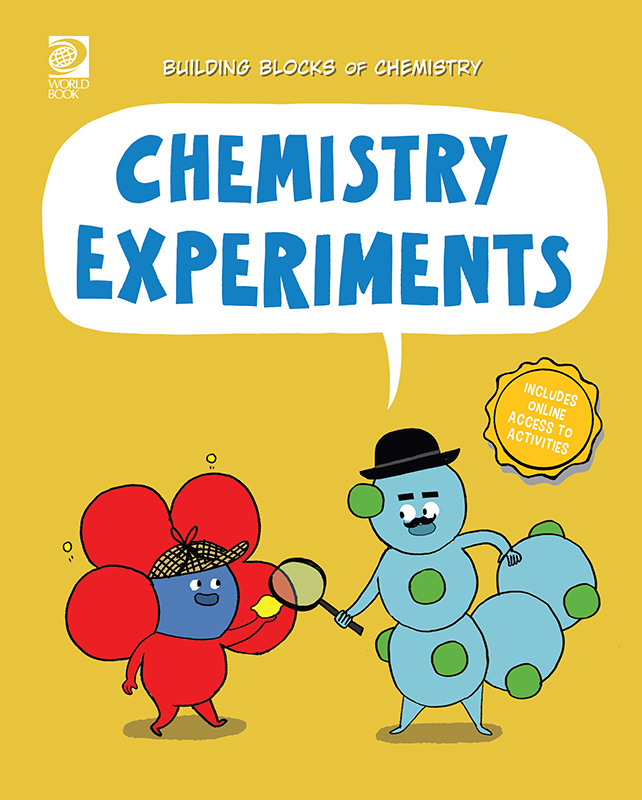Building Blocks of Chemistry
The Building Blocks of Chemistry Educator Section includes tools as well as ready-to-use classroom materials. Educators can see how the Next Generation Science Standards align with the Building Blocks of Chemistry books, organized by the grade level(s) they teach. In addition, educators will have access to reading resources such as discussion guides and comprehension checks as well as fun classroom activities! The Educators Section will also include engaging lessons, centered around standards, with built-in differentiation options to support all learners as they continue to explore this content.
Building Blocks of Chemistry Standards Alignment:
Use this section to view how the Next Generation Science Standards align to the Building Blocks of Chemistry series.
-
5th Grade Next Generation Science Standards Students who demonstrate understanding can:
Domain and Disciplinary Core Idea Performance Expectation Building Blocks Book(s) 5-PS1 Matter and Its Interactions 5-PS1-1. Develop a model to describe that matter is made of particles too small to be seen. Chemistry and Matter, Atoms and Molecules, Chemical Elements, Mixtures and Solutions, Chemical Compounds and Reactions, Acids, Bases, and Salts, Chemistry of Living Things, Chemistry Everywhere, Environmental Chemistry, Chemistry Experiments 5-PS1-2. Measure and graph quantities to provide evidence that regardless of the type of change that occurs when heating, cooling, or mixing substances, the total weight of matter is conserved. Mixtures and Solutions, Chemical Compounds and Reactions 5-PS1-3. Make observations and measurements to identify materials based on their properties. Chemistry and Matter, Atoms and Molecules, Chemical Elements, Mixtures and Solutions, Chemical Compounds and Reactions, Acids, Bases, and Salts, Chemistry Experiments 5-PS1-4. Conduct an investigation to determine whether the mixing of two or more substances results in new substances. Mixtures and Solutions, Chemical Compounds and Reactions, Acids, Bases, and Salts, Chemistry Everywhere, Chemistry Experiments 5-PS3 Energy 5-PS3-1. Use models to describe that energy in animals’ food (used for body repair, growth, motion, and to maintain body warmth) was once energy from the sun. Chemistry of Living Things, Environmental Chemistry 5-LS1 From Molecules to Organisms: Structures and Processes 5-LS1-1. Support an argument that plants get the materials they need for growth chiefly from air and water. Chemistry of Living Things, Chemistry Everywhere, Environmental Chemistry 5-LS2 Ecosystems: Interactions, Energy, and Dynamics 5-LS2-1. Develop a model to describe the movement of matter among plants, animals, decomposers, and the environment. Environmental Chemistry 5-ESS2 Earth’s Systems 5-ESS2-1 Develop a model using an example to describe ways the geosphere, biosphere, hydrosphere, and/or atmosphere interact. Environmental Chemistry 5-ESS3 Earth and Human Activity 5-ESS3-1 Obtain and combine information about ways individual communities use science ideas to protect the Earth’s resources and environment. Environmental Chemistry -
Middle School Next Generation Science Standards Students who demonstrate understanding can:
Domain and Disciplinary Core Idea Performance Expectation Building Blocks Book(s) MS-PS1 Matter and Its Interactions MS-PS1-1. Develop models to describe the atomic composition of simple molecules and extended structures. Chemistry and Matter, Atoms and Molecules, Chemical Elements, Mixtures and Solutions, Chemical Compounds and Reactions, Acids, Bases, and Salts, Chemistry of Living Things, Chemistry Everywhere, Environmental Chemistry, Chemistry Experiments MS-PS1-2. Analyze an interpret data on the properties of substances before and after the substances interact to determine if a chemical reaction has occurred. Chemistry and Matter, Atoms and Molecules, Mixtures and Solutions, Chemical Compounds and Reactions, Acids, Bases, and Salts, Chemistry Everywhere, Chemistry Experiments MS-PS1-3. Gather and make sense of information to describe that synthetic materials come from natural resources and impact society. Mixtures and Solutions, Chemistry Everywhere, Environmental Chemistry MS-PS1-4. Develop a model that predicts and describes changes in particle motion, temperature, and state of a pure substance when thermal energy is added or removed. Chemistry and Matter, Mixtures and Solutions, Chemistry Experiments MS-PS1-5. Develop and use a model to describe how the total number of atoms does not change in a chemical reaction and thus mass is conserved. Atoms and Molecules, Chemistry Everywhere, Environmental Chemistry, Chemistry Experiments MS-PS1-6. Undertake a design project to construct, test, and modify a device that either releases or absorbs thermal energy by chemical process. Atoms and Molecules, Mixtures and Solutions, Chemical Compounds and Reactions, Acids, Bases, and Salts, Environmental Chemistry MS-LS1 From Molecules to Organisms: Structure and Process MS-LS1-1. Conduct an investigation to provide evidence that living things are made of cells; either one cell or many different numbers and types of cells. Chemistry of Living Things MS-LS1-2. Develop and use a model to describe the function of a cell as a whole and ways parts of cells contribute to the function. Chemistry of Living Things MS-LS1-5. Construct a scientific explanation based on evidence for how environmental and genetic factors influence the growth of organisms. Environmental Chemistry MS-LS1-6. Construct a scientific explanation based on evidence for the role of photosynthesis in the cycling of matter and flow of energy into and out of organisms. Chemistry of Living Things MS-LS1-7. Develop a model to describe how food is rearranged through chemical reactions forming new molecules that support growth and/or release energy as this matter moves through an organism. Chemistry of Living Things MS-LS1-8. Gather and synthesize information that sensory receptors respond to stimuli by sending messages to the brain for immediate behavior or storage as memories. Chemistry of Living Things, Chemistry Everwhere MS-LS2 Ecosystems: Interactions, Energy, and Dynamics MS-LS2-1. Analyze and interpret data to provide evidence for the effects of resource availability on organisms and populations of organisms in an ecosystem. Environmental Chemistry MS-LS2-3. Develop a model to describe the cycling of matter and flow of energy among living and nonliving parts of an ecosystem. Environmental Chemistry MS-LS2-4. Construct an argument supported by empirical evidence that changes to physical or biological components of an ecosystem affect populations. Environmental Chemistry MS-ESS2 Earth’s Systems MS-ESS2-1. Develop a model to describe the cycling of Earth’s materials and the flow of energy that drives this process. Environmental Chemistry MS-ESS2-4. Develop a model to describe the cycling of water through Earth’s systems driven by energy from the sun and the force of gravity. Environmental Chemistry MS-ESS3 Earth and Human Activity MS-ESS3-1. Construct a scientific explanation based on evidence for how the uneven distributions of Earth’s mineral, energy, and groundwater resources are the result of past and current geoscience processes. Chemistry Everywhere, Environmental Chemistry MS-ESS3-3. Apply scientific principles to design a method for monitoring and minimizing a human impact on the environment. Environmental Chemistry MS-ESS3-4. Construct an argument supported by evidence for how increases in human population and per-capita consumption of natural resources impact Earth’s systems. Environmental Chemistry MS-ESS3-5. Ask questions to clarify evidence of the factors that have caused the rise in global temperatures over the past century. Environmental Chemistry
Reading Resources
Each book in the Building Blocks of Chemistry series comes with a Discussion Guide as well as a Comprehension Check! Each Discussion Guide includes 10 questions and is intended to be used during or after reading the text to help students better understand the content. Potential answers are also included. Each Comprehension Check also includes 10 questions and comes with an Answer Key. The Comprehension Check is intended to be used after reading and is a great assessment option.
Classroom Activities
These activities are designed for classroom use and can be used in both the small group and/or whole group setting. These activities bring some fun, engagement, and reflection to students’ learning!
A Mixture Hierarchy
In this activity, students will create detailed definitions of vocabulary terms related to mixtures and then organize them into a hierarchy. Students will collaborate with peers to classify real world examples of mixtures as solutions, suspensions, or colloids and justify their classifications in writing.
Snooping for Elusive Elements
During this activity, students will familiarize themselves with the structure and organization of the periodic table. Students will have a choice of working independently or with a peer as they search through the periodic table, snooping for elements with particular properties.
Chemistry Challenge
Looking for a fun, quick vocabulary game? Look no further! Chemistry Challenge provides a great opportunity to review vocabulary terms, definitions, and concepts related to the Building Blocks of Chemistry. Students will team up to answer a variety of questions centered around key chemistry vocabulary and concepts in this competitive, fun-filled game.
Lesson Plans
World Book has created lesson plans that can be used to help deepen students’ understanding of the Building Blocks of Chemistry concepts. These full lesson plans are aligned to standards, include assessment options, describe possible differentiation considerations, and include a variety of ways for students to stay engaged in their learning. Many materials are included as quick and easy downloads for your convenience.
Are All Antacids the Same?
In this lesson, students will collaborate with their peers to conduct an experiment that will help them answer the question, “Are all antacids the same, or do some work better than others?” Students will use their writing skills to provide evidence and reasoning to defend their answer to this question. This real-world scenario will not only engage students, but will also help them understand how science can be used to improve their quality of life.
Environmental Pollution Poster
In this lesson, students will read an article to extend their understanding of environmental pollution and the role humans have played in harming our planet. Students will combine information from the article with their prior knowledge to create a persuasive poster that convinces people to be concerned about the harms of environmental pollution and that provides suggestions for reducing and/or combatting it. To make this lesson even more authentic for your students, hang their completed posters around your school and/or community!
